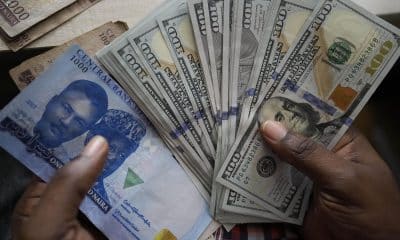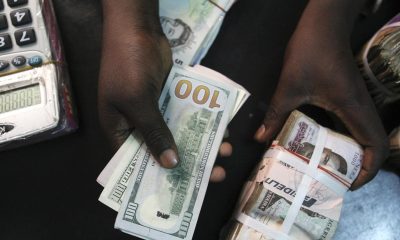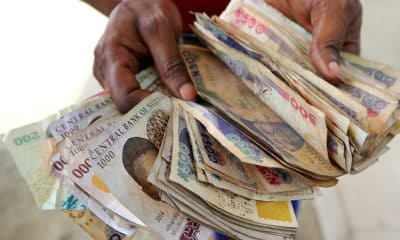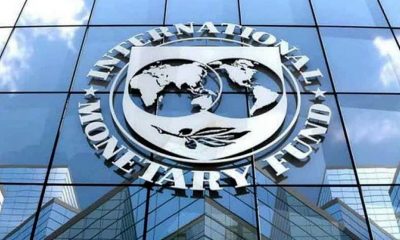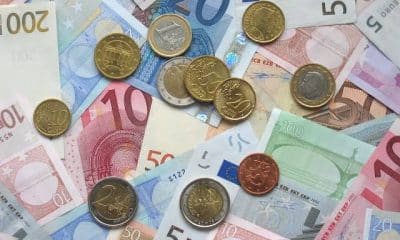Business
Naira Makes Strong Comeback Against Dollar In Parallel Market
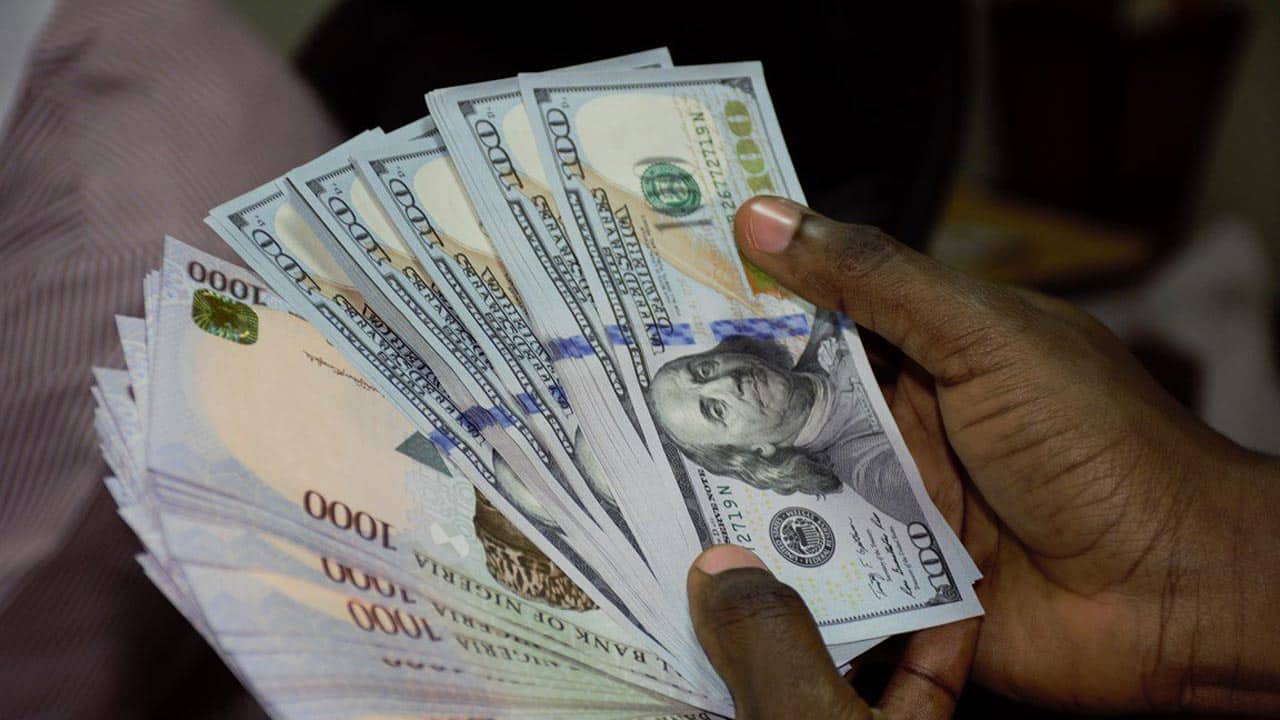
The Nigerian Naira recorded a significant appreciation in the parallel market, strengthening to ₦1280/$ yesterday, as reported by Nairametrics from currency traders.
This marked an impressive recovery from ₦1,400 to a dollar on Friday, reflecting a gain of 8.57 percent.
The surge comes after a period of volatility where the local currency had plummeted midweek, losing a third of its value just two weeks after rallying to below ₦1,000 against the dollar.
The sharp decline to ₦1,400 was attributed to fresh demand pressures, raising concerns among investors and the public regarding the effectiveness of the Central Bank of Nigeria’s (CBN) interventions in the forex market.
On Monday, the CBN had executed a strategic sale of $15.83 million to 1,583 Bureau De Change (BDC) operators at a rate of ₦1,021/$1.
This move was part of a broader effort by the apex bank to enhance foreign currency accessibility for qualified end-users and stabilize the foreign exchange market.
Currency traders noted that the recent depreciation of the Naira was largely driven by market dynamics, where the supply of dollars was insufficient to meet rising demand.
Despite these challenges, the Naira was traded between ₦1,280 and ₦1,300 per dollar in the parallel market as of the latest reports.
Conversely, at the official foreign exchange window, the Naira continued its downward trajectory, closing at ₦1,339.23/$1 on Friday, according to data from FMDQ.
This represented a 2.24 percent depreciation compared to the ₦1,309.88/$1 rate reported the previous day.
The CBN’s recent initiatives seem to have made a positive impact, as evidenced by the Naira’s recovery from an early March rate of ₦1,617 per dollar to ₦1,072 per dollar on April 17.
Meanwhile, the Association of Bureaux De Change Operators of Nigeria (ABCON), has revealed plans for a unified retail end of the foreign currency market to tackle the recent Naira depreciation.
The president of the association, Aminu Gwadabe, disclosed this on Friday, noting that the move would tackle volatility and boost regulatory compliance within that market segment.
According to him, the association is implementing plans meant to unify operators from different cadres of the market, including the inauguration of state chapters for market coordination, integration and administering a united market structure.
He revealed plans to upgrade ABCON’s Business Process Platform, formerly called SAAZ Master.
“Part of our vision for a united retail-end forex market includes activating geo-mapping and automated BDCs physical office verification exercise using the Remote Gravity Physical verification apps.
“This will enable forex buyers to easily locate BDCs offices for effective and seamless transactions,” he stated.
Senator Ned Nwoko yesterday advised the federal government and the CBN against any measure capable of artificially forcing the Naira to gain value against other currencies.
Nwoko, who represents Delta North, gave the advice in a statement.
He stated that continuous revisits to previously implemented policies and considerations of new ones were imperative.
He noted that the value of a sovereign nation’s currency is the cornerstone of respect and collaboration among nations.
The lawmaker emphasised that Nigeria must stimulate Naira demand.
According to him, as a country that exports crude oil and other commodities globally, it is imperative that all transaction on these items be conducted exclusively in Naira.
“This will incentivise buyers to seek out Naira, thereby driving its appreciation due to increased demand and scarcity.
“Moreover, the foreign reserve policy warrants reassessment.
“The practice of maintaining reserves in foreign jurisdictions, termed “foreign reserves,” is not only objectionable but also counterproductive to Nigeria’s economic sovereignty.
“Unlike other countries like the United States, Britain, France and Japan, which hold their reserves domestically, Nigeria’s adherence to this practice raises questions about its colonial legacy.
“If our early indigenous leaders acquiesced to this approach due to colonial influence, why should we perpetuate it? The primary rationale often cited to justify foreign reserves is trade balance maintenance,” Nwoko said.
According to him, this argument lacks merit when considering the limited number of traders involved in importing goods into Nigeria, which constitutes a negligible fraction of the country’s population.



